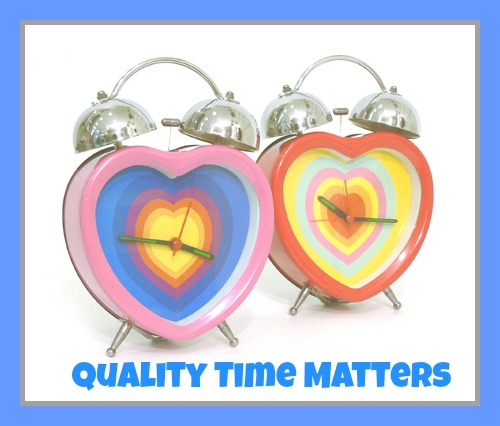When it comes to the aftermath of a divorce and co-parenting, one of the most significant challenges is maintaining quality time with your children as they grow older.
Instead of dwelling on the idea of “losing time,” shift your focus towards fostering healthy relationships with your children. Parents often concentrate on the first eighteen years of their child’s life. However, during this period, they are essentially laying the foundation for future relationships with their children, which extend beyond their eighteenth birthday. The goal is to establish open communication, nurturing, and a mutual interest in sharing holidays, rituals, activities, and pursuits. Once the children start their new life independently, these relationships continue, and parents find themselves not only in a relationship with their children but also potentially with their grandchildren – The Smart Divorce.
How Does Divorce Affect Parent-Child Relationships?
Divorce is a life-altering event, not just for the former spouses but for the entire family. It can significantly impact the parent-child relationships, often leaving emotional baggage that can affect future relationships. The most important thing to remember is that the child’s well-being should always be the priority.
A child’s emotional health can be influenced by how the divorced parents handle the situation. Maintaining open communication and ensuring the child doesn’t feel caught in the middle is crucial. Co-parenting can be challenging, but it’s beneficial in maintaining healthy relationships post-divorce.
A new chapter begins for everyone involved when a marriage ends. It’s a time for self-awareness, inner work, and healing. It’s important to remain cordial with your ex-spouse for the sake of your child. This doesn’t happen overnight, but it’s possible to navigate this new life with patience and respect.
How Long Does It Take Children to Adjust After Divorce?
Adjusting to life after parents’ divorce varies for every child. Some may find it easier to adapt, while others may struggle. It’s important to remember that children, like most people, process pain and change differently.
The time it takes for a child to adjust can depend on several factors, including the child’s age, the circumstances of the divorce, and the level of conflict between the parents. It’s crucial to provide support and maintain open communication during this time.
Seeking the help of a relationship counsellor can be extremely helpful in these situations. They can provide advice and strategies to help children cope with the changes. It’s also beneficial to encourage children to express their feelings honestly. This can help them process the divorce and start moving forward.
Remember, healing is not a race. It’s okay if your child takes time to adjust. The most important thing is to ensure they feel loved and supported throughout the process.
the biggest challenge
One of the biggest challenges for me post-divorce, especially now that my children are adults, is finding time to spend with them. Their social schedules, living on the university campus, and dividing their time between their mom’s and dad’s houses when they are home, leaves less available time. Dinner together has become a precious and relaxing time for us. However, I’ve learned some important lessons along the way.
Setting up expectations that they can adhere to usually works. For instance, my children know that Friday night dinners are important to me – they respect that and plan their activities accordingly. They might go out with their friends afterward, but at least they know where they’ll be for dinner. We adjust our timing around their schedule.
Allow your children to make choices. A child who has a good relationship with their parents is more likely to want to spend time with them and will make the effort too. They are less likely to leave as soon as possible.
Children’s plans are often last minute. One of my biggest frustrations is that my kids never know what they’re doing until they are actually doing it. I always plan in advance. I know my schedule and plan around it. Kids today operate on a different timeframe – they live in the moment. So, I’ve learned to adjust and work in the moment with them.
While my time may be limited in the moment, I’ve learned not to measure in terms of minutes and hours but in terms of the quality of the relationship I’m building. We have years ahead of us, and hopefully many milestones to celebrate from graduations to weddings, births to birthdays. Ensuring that my children cherish the time as much as I do, promotes a healthy relationship in the long run.
Help, my teenager doesn’t want to spend time with me!
Flexibility becomes crucial as your children enter their teen years. Teenagers are self-centered. Teenagers are fickle. Teenagers tend to see their parents for what they can offer–a wallet (money), a fridge (food, food, and more food), a bed (a place to sleep all day) and a car (with you as either their personal chauffeur or the “giver of the car keys”).
Don’t mistake your teenager’s struggle for independence, or his or her desire to spend more time with friends or on the Internet, as symptoms of your divorce. As children reach their early or mid-teens, their peer groups become essential to their lives. They don’t care about Mom’s time or Dad’s time; they just care about their own time. Their whole life focuses around their friends, which is normal–their primary focus is on themselves.
Many parents also complain that their children never let them know ahead of time what they will be doing, but that may be because the children themselves do not really know; that’s not how children make their plans. They get on their computers, they instant message each other, and the plan emerges, sometimes within a space of fifteen minutes. All of a sudden, they are busy and on their way to join up with friends.
Teenage behavior can be hard to take sometimes. The teen years can be especially hard for noncustodial parents. If you live an hour away from your child’s primary residence, where his or her school and peer group are, that makes it tough for the teenager to really enjoy his or her time at your home. As difficult as it may be for the noncustodial parent, most times that parent needs to take a backseat role to the person who is the custodial parent.
Here are some tips to stay connected with your teens:
Offer to drive them to their friends. Check in with your kids via their cell phones and e-mail accounts to just to say, “What’s up?”; “How was your day?”; and so forth. Checking in helps ensure that you have as much input with your kids as their friends do. Be flexible; be an open door. Invite kids over either after school or for a few hours on the weekend, or just to have dinner, rather than for the full evening or weekend. You can say, “You are welcome the entire weekend, but I won’t be upset if you want to be with your friends; you tell me if it fits in. If not, and you want to be with your friends, I’ll drive you.” If you pressure your kids to give up time with their friends in order to be with you, it will only backfire, causing your children to avoid you.
Try not to think in terms of minutes and hours; think in terms of the quality of the relationship you are building and sustaining.
Final Thoughts
Divorce is a life-altering event that can leave a trail of emotional baggage. It’s a chapter that closes, but it also opens a new one filled with new possibilities. As divorced parents, it’s crucial to maintain healthy relationships with your children and foster open communication. This process doesn’t happen overnight, and it’s important to give yourself time to heal.
Navigating the dating scene post-divorce can be daunting. It’s essential to tread carefully and not rush things. Remember, it’s okay to take your time. You might be carrying feelings from your past relationship, and it’s important to process these emotions before moving forward. Seeking the help of a relationship counselor can be extremely helpful in these situations.
As you begin to explore new relationships, it’s important to stay true to yourself. Don’t lose sight of your well-being and self-care. It’s easy to fall into the same patterns from your previous relationship, but remember, this is a chance for a fresh start. You have the opportunity to learn from your past and apply those lessons to your future relationships.
When you start dating, it’s important to communicate your status as a divorced parent to your new partner. This can be a hard conversation to have, but it’s a crucial part of moving forward. Your new partner should understand and respect your responsibilities towards your child.
Co-parenting with your ex-spouse can be challenging, but it’s beneficial for your child’s well-being. It’s important to remain cordial with your former partner for the sake of your child. This doesn’t mean you have to be best friends, but maintaining a level of respect and open communication can make a world of difference.
Remember, your child’s emotional health is the most important thing. They should never feel caught in the middle of their parents’ failed relationship. It’s your responsibility to ensure they feel loved and supported throughout this process.
Lastly, don’t forget about self-awareness and inner work. Reflect on your past, but don’t dwell on it. Use it as a tool to grow and better yourself. This is a new chapter in your life, and it’s filled with new opportunities. Embrace them, and remember, you’re not alone. There’s a community of people who have gone through the same thing and are ready to offer support and advice.
In conclusion, divorce is not the end. It’s a new beginning. It’s a chance to redefine your life and your relationships. It’s a journey of self-discovery and growth. So, take your time, heal, and when you’re ready, open your heart to the new possibilities that life has to offer.
At The Smart Divorce:
We understand that navigating the journey of divorce and maintaining healthy relationships with your children post-divorce can be a daunting task. It’s a path filled with emotional challenges and significant changes. But remember, you’re not alone in this journey.
At The Smart Divorce, we recognize the struggles you’re facing. We know that every family is unique, and so are the challenges they face. Our team of professionals is here to provide guidance, support, and strategies to help you foster healthy relationships with your children, even after divorce.
We believe in the power of open communication, mutual respect, and patience. We understand that your children’s well-being is your top priority, and we’re here to help you ensure that. We’re committed to helping you lay a strong foundation for your future relationships with your children, one that extends beyond their eighteenth birthday and continues into their adult lives.
We know that you’ve come to our webpage seeking answers, support, and perhaps a sense of community. We encourage you to reach out, to take that first step towards a healthier, happier post-divorce life for you and your children.
Remember, divorce isn’t the end. It’s a new beginning, a chance to redefine your life and your relationships. It’s a journey of self-discovery and growth. So, take your time, heal, and when you’re ready, open your heart to the new possibilities that life has to offer.
We invite you to Schedule a Get Acquainted Call with us. Let’s explore how we can support you in this journey towards a smarter, healthier post-divorce life.
Recent Posts
Navigating the emotional storm of a marriage ending can be overwhelming. You may be asking yourself, "My marriage is over; what should I do now?" Our latest podcast and blog post delves into this...
Divorce. For many, it's a word that carries a heavy weight—conjuring up images of conflict, bitterness, and shattered dreams. But what if there was another way? A way to navigate the complicated...

